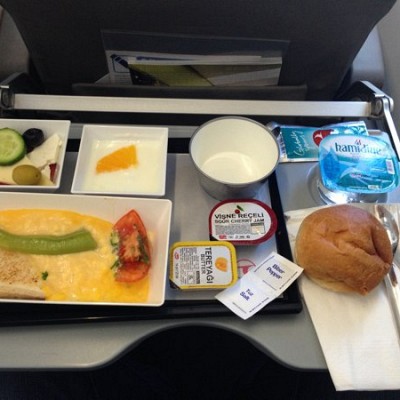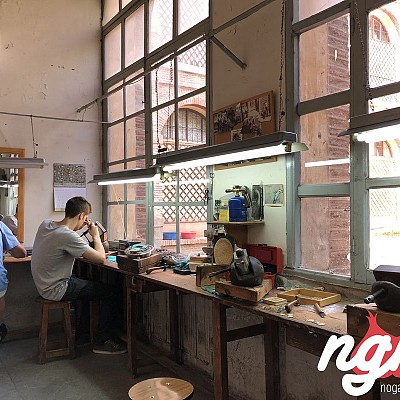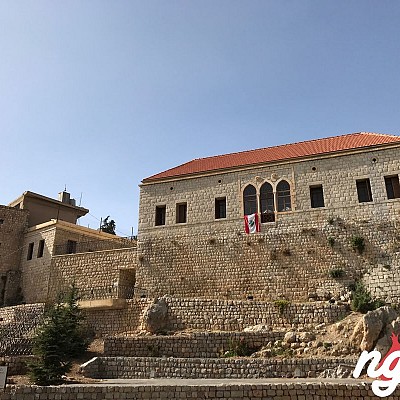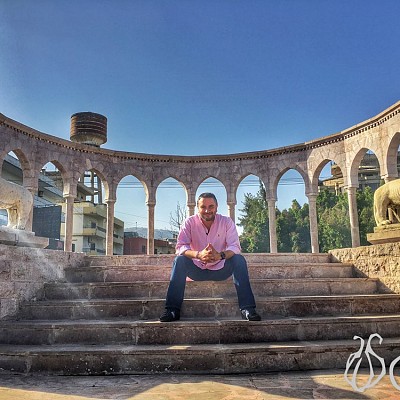One can't mention Lebanon without thinking of Baalbeck, the great temple. The Roman temple of Baalbeck is considered one of the world's biggest, if not the biggest, and is famous to everyone interested in Roman civilization or simply Lebanon.
Continuing our tour around the villages of Lebanon, Baalbeck was surely on the list... Baalbeck is more than the fortress, Baalbeck is more than the "Sfeeha" it's known for, but more of a land of peace and authenticity we tried to tell the world about.
Baalbeck is a town in the Beqaa Valley of Lebanon situated east of the Litani River. Known as Heliopolis during the period of Roman rule, it was one of the largest sanctuaries in the empire and contains some of the best preserved Roman ruins in Lebanon. The gods that were worshipped at the temple – Jupiter, Venus, and Bacchus – were grafted onto the indigenous deities of Hadad, Atargatis, and a young male god of fertility. Local influences are seen in the planning and layout of the temples, which vary from the classic Roman design.
Baalbeck is home to the annual Baalbeck International Festival. The town is about 85 km northeast of Beirut and about 75 km north of Damascus. It has a population of approximately 82,608.

Our tour around Baalbeck started before sunrise, a 75-minute drive from Beirut to the City of the Sun; it's called City of the Sun for its location which the Romans believed has the strongest sun in the world. At noon the sun hits so hard, even harder the burning desert of Saudi Arabia.
Houssein Yaghi was our host for the day. Houssein invited us personally to witness what his village, or let's call it the city, has to offer. He was so passionate about telling the world the truth about a peaceful village up in the Bekaa valley inviting Lebanese citizens to visit.
Baalbeck has a certain unmatched authenticity where locals live together enjoying every moment of the day. That can't but be noticed while you walk along the souks or pass by any shop for a sandwich.
Today, I had the finest Sfiha ever. Enjoyed the best raw kafta in years. Met exceptional people and, most importantly, witnessed the real meaning of generosity. If Lebanese are known for their generosity, Baalbeck is the queen. I honestly had never seen something of this sort: My regards to all of you people and thank you for this beautiful day.
Our day started at The Mountain House, a beautiful restaurant with amazing decor and food rarely found in the capital. The mountain house is a place I'll visit again and soon. After that, we visited a bakery still doing Tannour bread the conventional way.
Abou Mehdi's butchery -if you manage to find it- is the place where I had the finest and tastiest raw kafta ever, prepared live with such love and passion by Abou Mehdi himself. Amazing! This butchery is near a famous restaurant for cakes, known as Al Ajami; ask your grandparents, they surely know Al Ajami which opened in the early years of the Twentieth Century. Al Ajami, the three Iranian/American/Lebanese brothers propose a cuisine many forgot how to prepare. They cook and serve you a portion while you sit in their old place to enjoy it.
PS: Did you know that in Baalbeck there is something as famous as the Sfeeha? The Nammoura with Ashta. Nammoura, the famous sweet cut in the middle and stuffed with Ashta. A must try.
Afterwards we stopped at Lakkys. Lakkys has his own farms in which he produces dairy related products and not only that, a renowned Sfeeha prepared in-house from the meat to the dough and the stone cooking. Nobody could replicate Baalbeck's Sfeeha, it is indeed a mad thing!
Enough said, all you have to do is watch the video and plan your next visit to Baalbeck.
- Al Ajami: A Historical Restaurant Oozing History up in Baalbek
- Mountain House: High Standards and Beautiful Decor up in Baalbeck





















































































































































